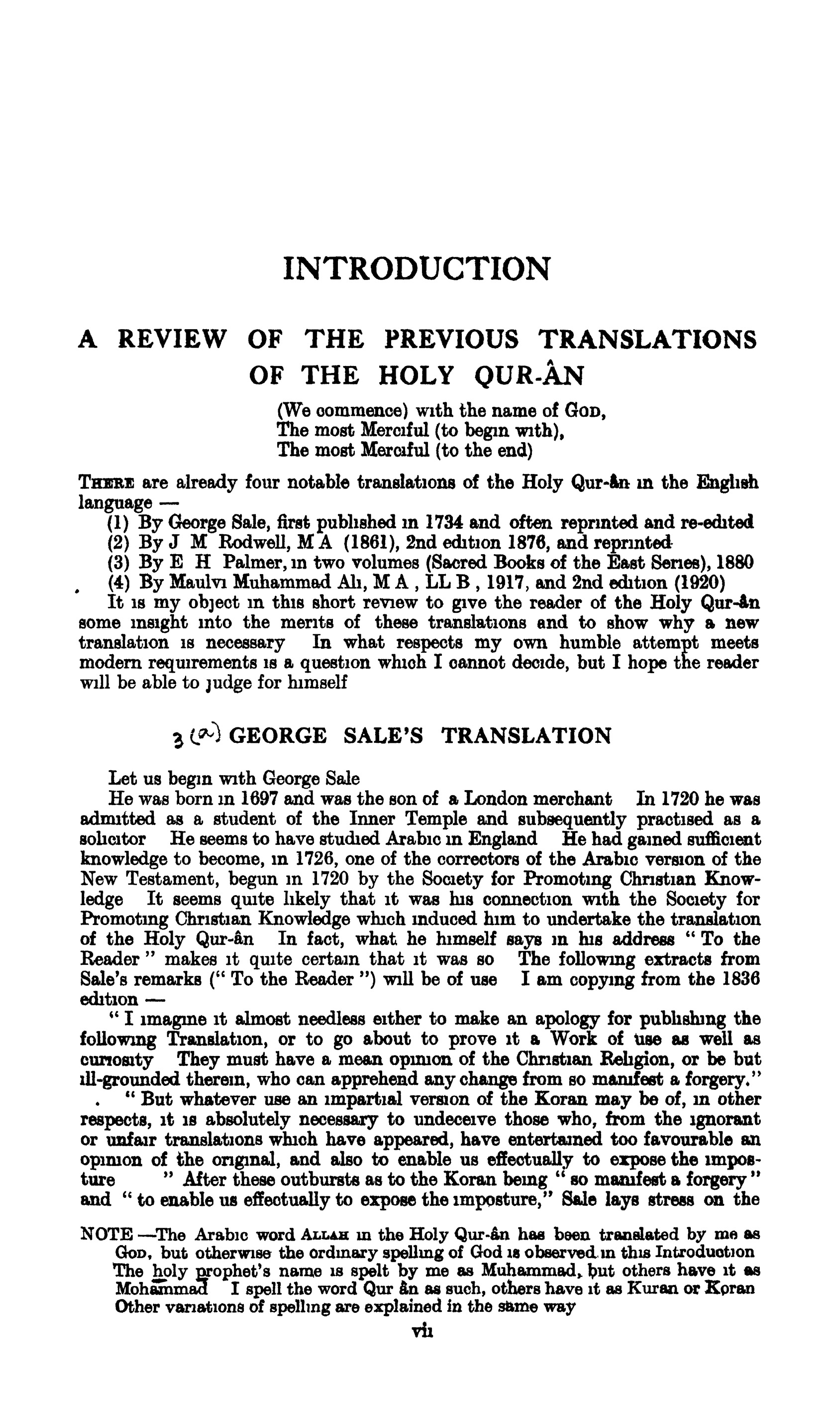Ghulam Sarwar, Translation Of The Holy Qur-ân. From the Orginal Arabic Text with Critical Essays, Life of Muhammad, Complete Summary of Contents. (1929)
Introduction
A review of the previous translations of the Holy Qur-ân
The most Merciful (to begin with),
The most Merciful (to the end)
(1) By George Sale, first published in 1734 and often reprinted and re-edited
(2) By J M Rodwell, M A (1861), 2nd edition 1876, and reprinted
(3) By E H Palmer, in two volumes (Sacred Books of the East Series), 1880
(4) By Maulvi Muhammad Ali, M A, LL B, 1917, and 2nd edition (1920)
It is my object in this short review to give the reader the Holy Qur-ân some insight into the merits of these translations to show why a new translation is necessary. In what respects my own humble attempt meets modern requirements is a question which I cannot decide, but I hope the reader will be able to judge for himself.
3 George Sale’s Translation
Let us begin with George Sale
He was born in 1679 and was the son of a London merchant. In 1720 he was admitted as a student in the Inner Temple and subsequently practised as a solicitor. He seems to have studied Arabic in England. He had gained sufficient knowledge to become, in 1726, one of the correctors of the Arabic version of the New Testament, begyn in 1720 by the Society for Promoting Christian Knowledge. It seems quite likely that it was his connection with the Society for Promoting Christian Knowledge which induced him to undertake the translation of the Holy Qur-ân. In fact, what he himself says in his address “To the Reader” makes it quite certain that it was so. The following extracts from Sale’s remarks (“To the Reader”) will be of use. I am copying from the 1836 edition —
“I imagine it almost needless either to make an apology for publishing the following Translation, or to go about to prove it a Work of use as well as curiosity. They must have a mean opinion of the Christian Religion, or be but ill-grounded therein, who can apprehend any change from so manifest a forgery.”
“But whatever use an impartial version of the Koran may be of, in other respecta, it is absolutely necessary to undeceive those who, from the ignorant or unfair translations which have appeared, have entertained too favourable an opinion of the original, and also to enable us effectually to expose the importure.” After these outburst as to the Koran being “so manifest a forgery” and “to enable us effectually to expose the imposture,” Sale lays stress on the
Note — The Arabic world Allah in the Holy Qur-ân has been translated by me as God, but otherwise the ordinary spelling of God is observed in the Introduction. The holy prophet’s name is spelt by me as Muhammad, but others have it as Mohammad. I spell the word Qur-ân as such, others have it as Kuran or Koran. Other variations of spelling are explained in the same way.
